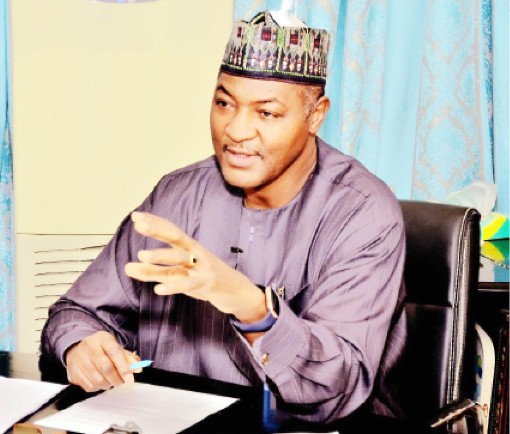The Secret Of High Standards In Bayero University – Vice Chancellor
INFOMEIDA – Professor Sagir Abbas is the new Vice Chancellor of the Bayero University Kano (BUK). He emerged the 11th VC of the university in August. In this interview, he speaks on his plans for the university and ways to improve education in the country.
As the new VC of BUK, what are your plans for the university?
The VC’s plan cannot be different from the vision of the university.
So the vision is to make BUK a leader in research and education in Africa; to make sure I lead the university in this direction to get to the point I just mentioned.
So I don’t have an independent plan. My plans are that of the university and that was why I was appointed as the VC.
On e-learning and ICT, the deficiency of most universities in the country was exposed with COVID-19. What is the status of BUK?
One of the challenges we face in BUK is lack of robust ICT connectivity and availability, and it is one of the key areas I have promised that within my time I will do all I can to move the university higher than where I met it in terms of ICT and e-learning.
We have started doing something in that direction (e-learning) but regarding internet connectivity, we are still lagging behind.
One of the reasons I found when I came in was that there is a facility with TETFund which normally gives research grants to tertiary institutions regarding ICT, so when I came in I found out that the university has not been able to access this grant, and the reason I found out was that there is one requirement which blocked our chance; which has to do with the university having an ICT policy.
A committee was set up by the previous VC to get that; so we are going to finalise that and see what we can do to access that facility from TETFund.
Secondly, I’m going to expand that committee to go beyond what it has been mandated to do so that we will have robust internet connectivity in the university.
We have younger universities less than 10 years old having better Internet connectivity.
This is what we want to overcome in the next few years and hope to achieve this before I leave.
On research, are we expecting a breakthrough, especially on COVID-19 vaccine?
Incidentally, I established the Directorate of Research, Innovation and Partnership of this university.
We have a policy and academic staff of the university have been able to access research grants both within and outside the country.
In 2019, we attracted over N400m research grants to individuals and groups within the university, the researches are ongoing and we are going to get more.
Part of my promise is to strengthen what I established and make the directorate to be more up and doing to attract more research so that members within the university will be conducting researches and addressing problems of our people.
We don’t want to be doing researches not connected to the environment.
We want to delve into issues that are really problems to us that will attract our members to be conducting researches on them.
Example, in Kano we have serious issues with drugs cutting across the society.
Now these are the kinds of issues our members of staff should be addressing; write a proposal, look for grants to address them.
BUK as far as research is concerned, we are well grounded and we have already gone far in that.
We will strengthen it more.
It’s already in the news that from our Faculty of Engineering we were able to come up with a ventilator for COVID-19 which is being presented at the national level.
On vaccine, not necessarily, but there were several attempts and we have been able to do something with the ventilator.
The Federal Government through the National Universities Commission (NUC) is giving university subscriptions at a subsidised rate called the Nigerian Research and Education Network (NgREN). Is BUK a subscriber?
We are the leading member of NgREN.
The essence of it is for universities to have a common platform to share information regarding researches and whatever they do so that anything BUK is doing can be accessed at Lagos, Port Harcourt and Maiduguri.
Many universities have not given their subscriptions.
We have paid ours and are waiting for others to do the same so that the project can start.
Funding is a very serious issue with federal universities.
One of the key issues I raised when talking to faculties regarding my coming as VC was that I intend to increase the funding base of the university.
One of the ways is to make the university to be the best in areas like acquiring property that will generate funds for the university.
If we get a facility to commercialise, we can be generating money.
What are your plans to ensure BUK products are exceptionally different from those of other institutions?
We have been trying our best to produce good graduates.
Read Also:
Many of you are our products.
You know what you went through compared elsewhere.
Our intention is to improve on this quality by ensuring we have enough lecturers and facilities in all programmes.
In places like the United States of America, students apply and get loans to pursue higher education, do you think we can explore this to address revenue boost in educational pursuit?
Our set up is different. In Nigeria we don’t have a database to track people that will collect loans.
In Nigeria, if you introduce this, you won’t see the person again. In the US, you can be tracked.
If we introduce this here, it may not work for us until when we have a system that keeps information of ourselves; and the best is the National Identity Number Card.
We have been on it for more than 10 years and are yet to achieve it.
The university has secured licenses for TV and radio stations, what is the update?
We are good to go and set to commence, but COVID-19 is what is keeping us.
Universities are daily springing up in Nigeria; do you think this will decrease the standard of higher education?
The universities are close to 200. The federal has about 43, private about 70 or so and the remaining are for states.
If you look at the total number of students attending the universities you will see this won’t be a problem because the carrying capacity of the universities is less than 30 per cent.
Even here in BUK, we don’t admit more than 30 per cent of our applicants, so where do the remaining applicants go to?
So if you get more universities you are opening opportunities for many to have university education.
I don’t think it is a problem.
If it is any state or private person who attempts to open a university where there is no need it, will die a natural death because nobody will go there and you have to shut down.
But you find out the ones being opened are being patronised.
We have many students that can’t be admitted into the existing universities and are still roaming the streets; with these new universities they will have opportunities.
Do you not think these universities may bring the “Cotonou Degree” or sub-standard degree problem into the country?
We won’t be like Cotonou because we have the NUC. NUC will not give you license until you have the structures, requisite manpower and facilities to run the programmes.
In the case of Cotonou, you may not be even there but you will get your degree from Nigeria; which is something absurd.
Allegations abound that admission exercises of universities are marred by favouritism. What are your plans, especially in ensuring that only qualified candidates get admitted?
I don’t know about other universities, but I can talk about BUK. I have been an admission officer for four years, and I know we have standards and we never allow unqualified persons into programmes, and JAMB has made it very easy for us now.
JAMB will require each university to define its minimum entry requirement. For BUK there is no programme that is below 180.
So we don’t have any programme that admits students with less than 180. And of course the upper bound is there, we have medicine taking 230 and 235.
We have cases when people say when you want admission go to BUK.
I will give you a story; Prof. Azare was a DVC over 15 years ago and was in charge of admission.
Someone came from Enugu and I happened to be in his Azare house that day.
The person came in with his daughter who he said got admission here in BUK and that he doubted it.
The man presented her letter and Azare brought out his file and showed confirmed that it’s true; she was truly admitted into medicine.
The man was surprised. He said he could not even get admission for the girl’s brother in his own state. We have this reputation for many years.
You came in at a period your predecessors set high standards, especially in infrastructure, what should be expected from you in this area?
I happened to work with the last four VCs and I have been part of the progresses recorded.
So our number one secret here is that we make consultations when we do our things.
Some are even saying we are being favoured by the federal government, but the secret is that we consult.
Immorality among lecturers and students has become a burning issue, what is your take on this?
We have not been weak in this direction.
Many of our colleagues were sacked because of one case or the other.
Both teaching and non-teaching staff, when they are found wanting, normal procedures of punishment are applied.
Cultism is zero or very low here because of the way we do things.
In most cases in the universities, victimisation of students leads to cultism.
Here, we are fair.
The fairness is seen right from admission.
I know of two sitting vice chancellors whose children applied for certain courses but were denied.



























